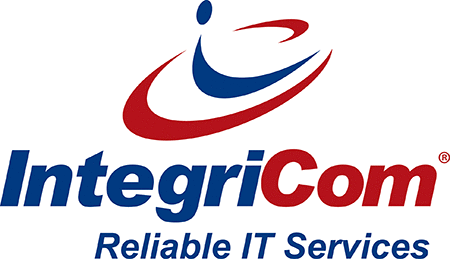Hosted VoIP vs. On Premise: Introduction
If you’re thinking about upgrading the business telephone system for your small to medium-size business, you’ll likely be presented with a choice between hosted VoIP vs. on premise VoIP phone systems. There are advantages and disadvantages for SMBs to consider and compare when deciding if an on-premises or hosted VoIP system is the right system for your business.
In this article, we compare the pros and cons of hosted VoIP vs. on premise phone systems so you’ll have a much clearer understanding of which option fits your unique needs the best.
Table of Contents
- What are the different types of VoIP?
- What is Hosted VoIP?
- What are the main benefits of hosted VoIP?
- What are the disadvantages of hosted VoIP?
- Hosted VoIP Systems for SMBs
- What is an on-premise phone system?
- What are the main benefits of on-premise VoIP?
- What are the disadvantages of on-premise VoIP?
- Hosted VoIP vs On-Premise Comparison Chart
- Hosted VoIP vs On-Premise FAQs
- Summary
What are the different types of VoIP?
VoIP stands for voice over IP, or voice over internet protocol. IP is the protocol that most networks use, including the internet, and it was designed in the 1970s. It is a communications framework to electronically transfer information over computer networks. Many types of information can be “carried” by the IP protocol, and one type is voice, thus voice over internet protocol, or VoIP.

Sometimes VoIP is just thought of as a way for individual users to communicate with each other directly over the internet. Services like Skype, Facetime, and others are examples of this. They do not use the public phone network but simply connect to each other directly via the internet. This article will not cover this type of VoIP communications but will be limited to business VoIP phone systems that need to communicate with anyone including those using the traditional public voice network.
 There are two main types of VoIP phone systems, on-premise and hosted.
There are two main types of VoIP phone systems, on-premise and hosted.
Hosted phone systems are sometimes called cloud phone systems. While rare, there are also some hybrid VoIP phone systems, where there is a phone system “box” on-premise that is managed and configured from a cloud interface, but in this article we will focus only on on-premise and hosted phone systems.
What is Hosted VoIP?
Hosted VoIP phone systems are not on-premise but rather in the cloud. “In the cloud” just means that the phone system is somewhere else across the internet, typically in a data center.
In a hosted phone system scenario, the local phone handsets (or in today’s world it could be a software telephone or even a smartphone app telephone) are connected to a phone system in the cloud vs. in the office closet or IT room. And the voice services are technically delivered to the cloud location and not to the office (this may bring a question to mind of how distressed callers could be located when dialing 911, but there is a solution called e911).
What are the main benefits of hosted VoIP?
1. Easier to Install
Hosted VoIP phone systems are much easier to install and get operational. In fact, most of the work is done by the cloud provider.
2. Less Expensive
On the financial side, this type of system allows business owners to have a complete business phone system without having to invest capital into a on-premise phone system “box”.
 3. Scaleable
3. Scaleable
Hosted VoIP systems are also easier to scale up or down as you grow or decrease. It is also not necessary to order your own voice services as they are provided as part of the hosted service. Traditionally, both internet and voice services had to be purchased and the voice services would be connected to a on-premise phone system. With hosted VoIP, only internet services are purchased which is all that is needed to connect to the cloud phone system.
4. Connectivity from Anywhere
Another benefit of hosted voice is easier connectivity from anywhere. If you want to make phone calls from your business phone number when you are traveling, it works much better to connect to the cloud phone system vs. trying to connect to a system back at the office.
Hosted VoIP phone system is much more likely to tightly integrate with other communications methods like text or chat messaging and video calling.
5. Feature Rich
Hosted VoIP phone systems also tend to be more feature rich, plus they inherently come with continual improvements and updates vs. being stuck with what you purchased for a on-premise system.
For example, a hosted VoIP phone system is much more likely to tightly integrate with other communications methods like text or chat messaging and video calling. Also, features like presence (the ability to see whether coworkers are at their desk or not, or whether they are on the phone or not) is much more likely to be included in a hosted phone system vs. an on-premise system.
 What are the disadvantages of hosted VoIP?
What are the disadvantages of hosted VoIP?
Hosted VoIP does require a reliable internet connection.
Because you are connecting your phone to a phone system in the cloud, it must use your internet for this connection. So, for locations with poor internet, VoIP may not be a good option. While fast speeds are not directly related, it does help and is generally the solution. What’s important is that the connection is consistent so that the information delay does not vary (for the techies, this variance of delay is called jitter).
Hosted VoIP Systems for SMBs
Hosted VoIP systems are common with SMBs. They provide low-cost entry to a full featured business phone system, the flexibility needed, and the pricing needed. At IntegriCom, we serve the SMB market, and we have a few select system we recommend and install for our clients. Whether the need is basic or more advanced, we provide the perfect fit including the necessary engineering to ensure the best experience.
 What is an on-premise phone system?
What is an on-premise phone system?
An on-premise phone system is a physical phone system that is owned (or leased) by a business and stored at the main premises. On-premise phone systems can utilize VoIP or they may not use VoIP at all, especially the older systems.
VoIP does not technically require the internet to work but it does require a network using IP protocol. Most networks are IP networks. For example, a typical business office would have an IP network that networks all computers together, plus connects them to the internet.
So, it is possible to have a phone system, where the users within the office talk with each other over the network (VoIP), but when they talk with someone outside the office, they could still be using a traditional voice network vs. the internet. In other words, the phone system’s telephones (or handsets) could be using VoIP to connect to the phone system, but the phone system could be using a traditional voice connection to the public voice network.

Regardless, these are examples of on-premise phone systems, which means the phone system is in your office and the voice services are delivered to your office. The voice services could be delivered over the internet or by more traditional means.
What are the main benefits of on-premise VoIP?
1. Under Your Physical Control
One benefit of an on-premise VoIP phone system is that it at your office and completely in your control; however, that may really be a disadvantage if you do not have the proper technical skills or resources to maintain the system.
2. Works Without the Internet (Typically)
On-premise phone systems also will work completely without the internet, unless your voice services (dial tone) are delivered over the internet. Regardless, station-to-station (internal user-to-user) calls do not rely on the internet whereas a cloud VoIP system may require the internet connection to the hosted phone system even to call someone within the office.
What are the disadvantages of on-premise VoIP?
1. Requires Technical Expertise to Maintain
Like previously mentioned, the system is physically in your office and under your complete control, which may not be a good thing unless you have the technical skills or resources to maintain it.
2. Capital Costs
Another disadvantage would be the capital costs involved in getting this system. On-premise phone systems require you to purchase the phone system “box” that resides in your closet, whereas a hosted system only has a monthly fee, and may even include free phones.
3. Voice Service Costs are Separate
Another disadvantage of a on-premise phone system is that you must purchase voice services on your own, from your carrier, vs. it being provided by the hosted phone system provider.
4. Stagnant Features
On-premise phone systems are less likely to have newer features and integrations with other means of communications like chat messaging, SMS/text messing, or video calling.
Hosted VoIP vs On-Premise Comparison Chart
Hosted VoIP | On-Premise VoIP | |
Easy to Install | Yes | No |
Easy to Scale Up or Down | Yes | No |
Capital $ Investment | No | Yes |
Requires Quality Internet | Yes | Not Necessarily |
Must Acquire Own Voice Services | No | Yes |
Feature Rich System | Yes | Not Always |
Easy to Connect from Anywhere | Yes | No |
More Likely to Integrate with Chat, Texting, Video | Yes | No |
Continued System Updates & New Features Included | Yes | No |
Requires Special Skills Set to Maintain | No | Yes |
 Hosted VoIP vs On-Premise FAQs
Hosted VoIP vs On-Premise FAQs
Here are some commonly asked questions and answers.
Do You Need a PBX for VoIP?
PBX, or private branch exchange, is just another name for a business phone system. When using VoIP for a SMB, a phone system (or PBX) is not required – at least not from the business owner’s perspective.
When using hosted VoIP, there is a phone system in the cloud, but it is not something that needs to be purchased and installed. And the cloud system is all that is all that is needed to have a very robust phone system.
Is VoIP the same as hosted Voice?
Technically no, but hosted voice is almost always using VoIP (voice over IP). But VoIP can be used without a hosted/cloud phone system. For example, a local phone system can use VoIP to communicate from the phones to the phone system, all within the building. VoIP is the technology of sending voice over data networks (vs. voice networks) and hosted voice is describing a voice system that is in the cloud for remote use.
VoIP allows small businesses a low-cost way to have a large business phone system.
Is VoIP worth it for a small business?
Most definitely. VoIP allows small businesses a low-cost way to have a large business phone system.
Can you use VoIP without a provider?
Yes, calls can be made directly from one device to another using only the internet (Skype, Facetime, etc.), but for a business, you will almost always see a provider involved because calls will need to be made to users on the public voice network.
How do small businesses use VoIP?
Most small business subscribe to a hosted VoIP phone system provider. Their phones (desk phones, software phones, or smartphone app phones) are registered to the cloud phone system from which they can call to anywhere in the world.
Which is the best VoIP service available in market?
There is no one answer to this question, and if there were, it would change next week, next month, or next year. And all businesses do not need the same thing, so what is best for one might not be for another.
At IntegriCom, we stay on top of trends and voice technologies and can match the best system for each individual business.
Summary
Traditional on-premise phone systems are still used today, but they are in a steady decline. Even on-premise VoIP systems are less popular than hosted VoIP. Hosted VoIP phone system are almost always the clear winner for most small and medium sized businesses.
Get the Right Phone System for Your Business
If you need more analysis or need help identify the right phone system for you, please call us at IntegriCom to help. That’s what we love to do!
Contact Us or call 678-507-0700


 There are two main types of VoIP phone systems, on-premise and hosted.
There are two main types of VoIP phone systems, on-premise and hosted. 3. Scaleable
3. Scaleable What are the disadvantages of hosted VoIP?
What are the disadvantages of hosted VoIP? What is an on-premise phone system?
What is an on-premise phone system?
 Hosted VoIP vs On-Premise FAQs
Hosted VoIP vs On-Premise FAQs